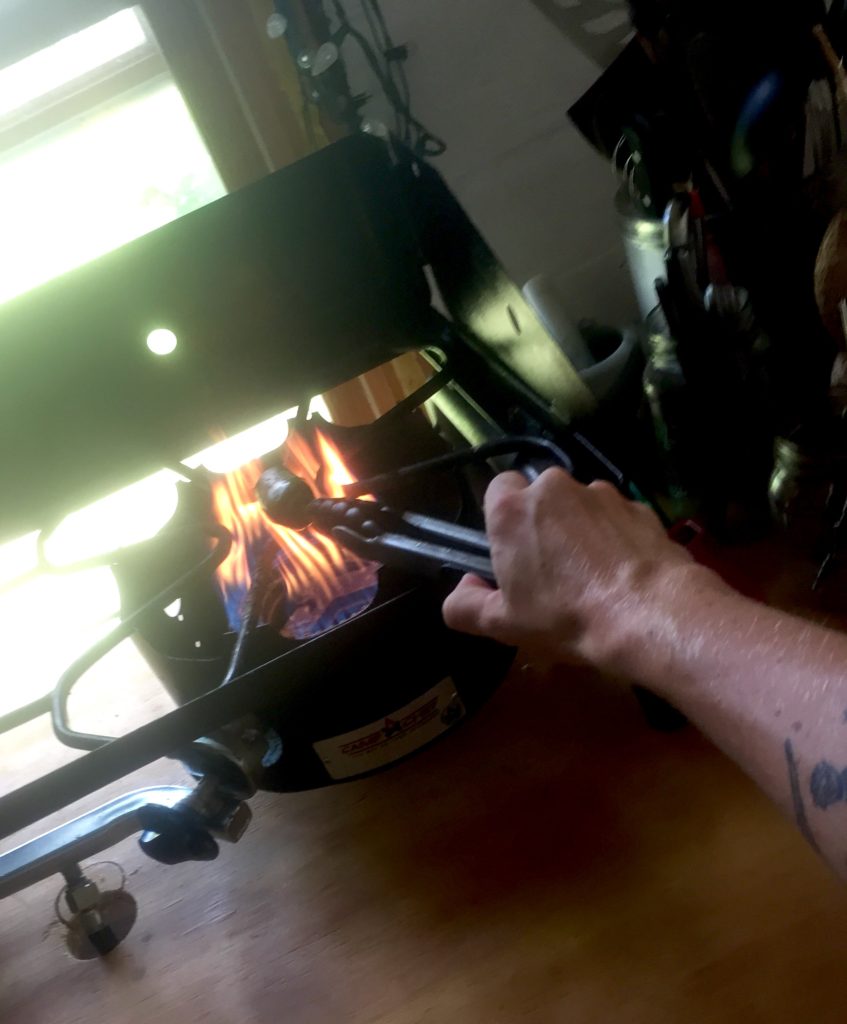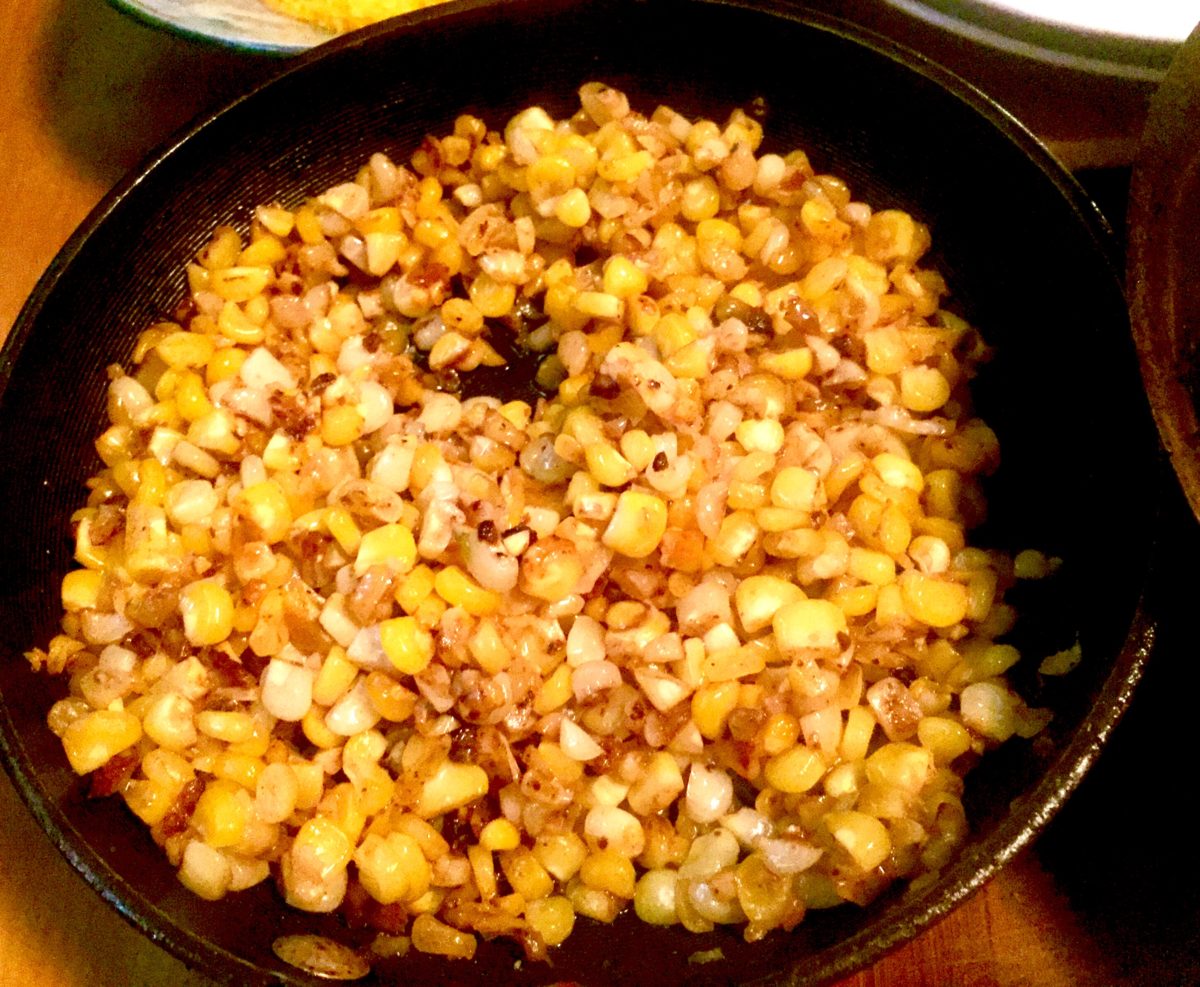Sweet Corn Season
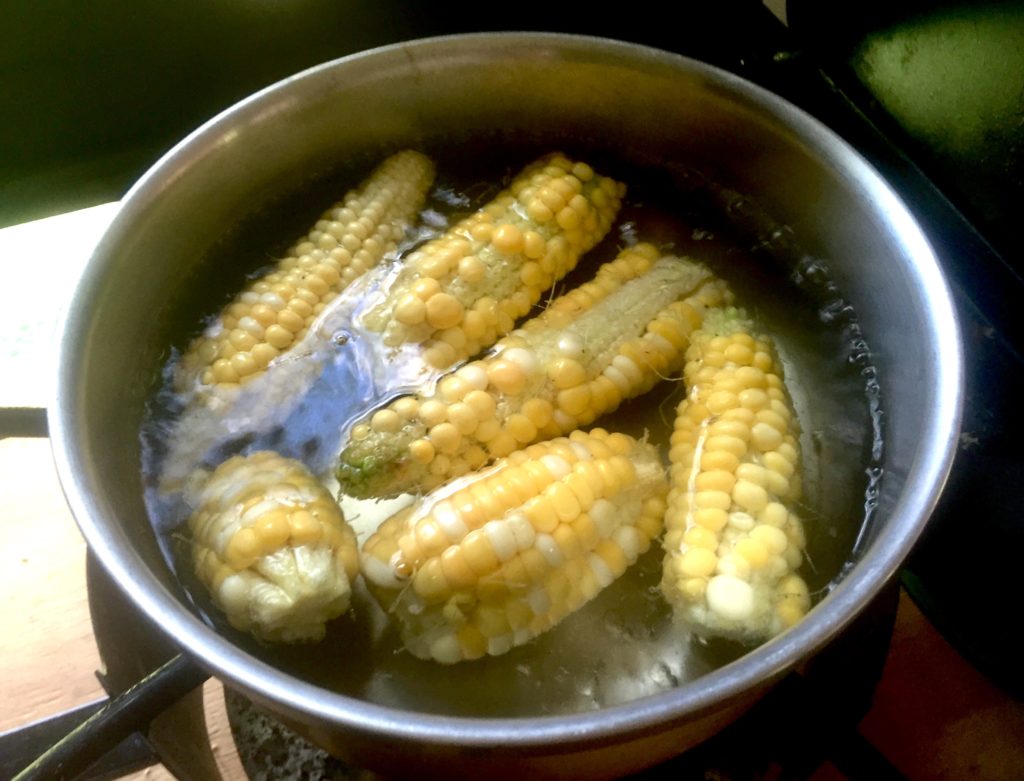
Something elemental in me knows fall is coming on, without looking at a calendar. A flock of robins hurried, heavy-breasted above me this evening. The ditch-side weeds are fluffy and dry—going to seed and taking to the winds, switching directions like winging dragonflies. I crave corn—sweet and salty.
Sweet corn season catches me up every year. I wait all eleven or so months for a handful of tantalizingly-temporary meals containing fresh sweet corn.
I eat popcorn multiple nights a week at all times of year, but there’s nothing like the summer’s first shut-eyed, yellow-crunch, sweet-buttery bite of corn on the cob.
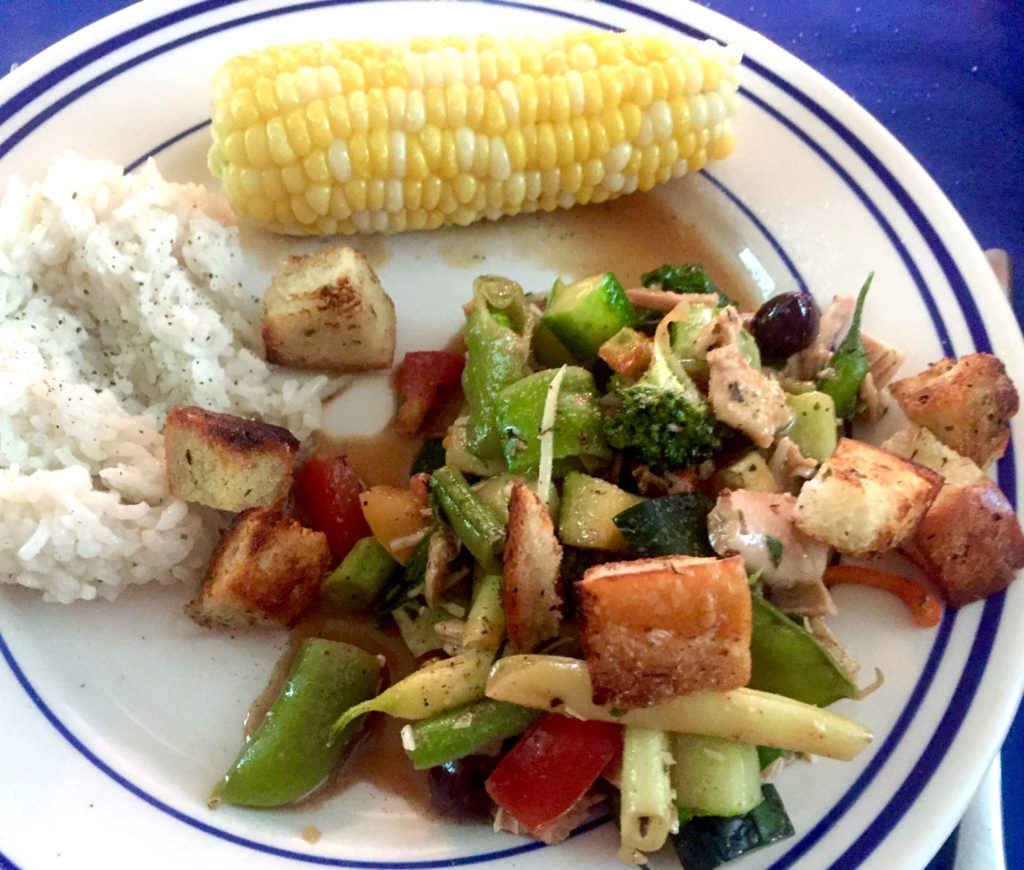
Corn in many incarnations comes our way on a daily basis, but in forms far removed from the yellow maize harvested by early Americans hundreds of years ago. We don’t recognize it any more, it comes in so many shapes and varietals—yet our idea of “corn” is still deeply entrenched in an image of a yellow, husked and tasseled ear.
Corn has developed a negative reputation in our culture—and rightfully so. Its large-scale farming destroys ecosystems; its processing is harmful to both environment and individual consumer; its production exists in a precariously balanced government subsidy program in which, ultimately, the farmers who risk their livelihoods to cultivate the ancient grain, lose—often sacrificing a lifetime’s health and finances.
It’s strange, how human intervention so drastically changed the corn plant—how, as Michael Pollan illustrates in his book The Botany of Desire our desire for certain traits from the corn plant irrevocably transformed corn’s evolutionary trajectory.
Corn was and is a staple diet of many segments of ancient and modern America. U.S. culture visualizes corn as the yellow and white symmetrical rows with green husk and frilled tassel. In reality, there are dozens of strains, in various shapes and sizes. Corn was sacred to many early American societies, particularly in the South Americas. Each variety and function corn represented was respected and even worshiped.
Its significance as a staple crop was recognized and celebrated.
We’ve deviated far from understanding our mutualistic relationship, and that lack of consideration has compromised our health, ecosystems, and connection to a symbiotic plant-human relationship that is crucial to human well being and survival.
I find it odd to ponder that the corn syrup found in soft drinks and candy is produced from the same plant that formed the well-salted, butter-dripping ear of corn clasped between my thumbs and forefingers. It truly is a wonder how humans invented ways to manipulate the natural world. Whether many of these manipulations are bad or good remains to be seen—we’re human experiments.
What concerns me is how often we stop to ask, “Why.” It seems an important question, that’s too often overlooked.
Corn on the cob is delightfully messy to eat. It’s a sensual experience, sweet and salty, butter dripping between fingers and across lips and chin. It’s a meal that requires full physical involvement—chewing, picking teeth, licking fingers, wiping chin, sucking sweet juice and butter soaked cob, and then having just one more.
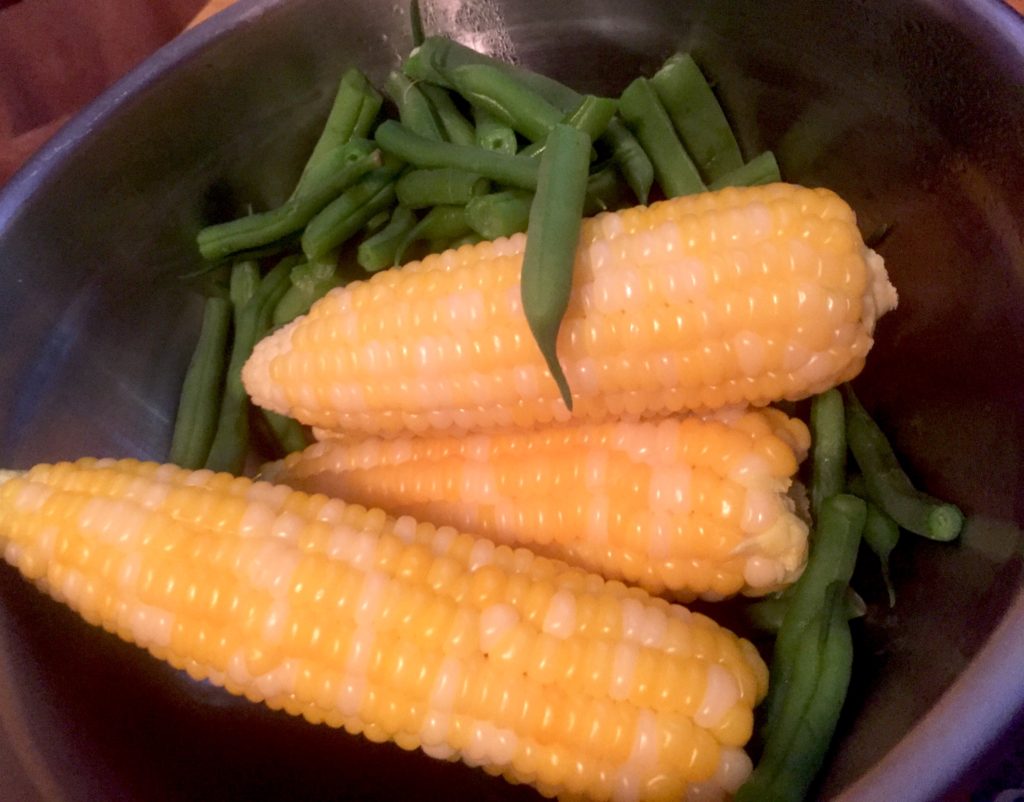
My favorite summer meal is a BLT and corn on the cob. I’m blessed to have had this meal every summer I can remember because my parents raised my sister and I in a dreamy, hard-work-harvest, food landscape. Food and food production plays in most good memories I have.
The corn crop is a passion-project for my father. He puts up electric fences and works tirelessly to keep birds, chipmunks, squirrels, deer, and raccoons from destroying the tempting plants.
The summer I was fourteen, we worked as a family propping up corn stalks after a flattening wind and rain storm almost destroyed the harvest. We crawled on our hands and knees in the black, rain-wet dirt—my mother, father, sister, and me. The sun was hot, and it was humid beneath the tasseled corn-tree-trunks that towered above my bent back. Dirt crawled up my fingernails, and slugs slumped away from my patting hands, as I propped and packed, propped and packed. It was boiling and hard work, but a camaraderie developed between siblings and parents. When the rows stood straight again, we swam, the four of us, washing away dirt, laughing, brushing corn pollen from our hair.
I’ve had a lot of delicious BLTs, but those made in the Mills household will always be the best: my mother’s homemade bread, bacon, fresh-picked tomato, crisp garden-lettuce, and tangy organic mayo. My sister and I were usually given the task of shucking the corn, which we did with gusto, enjoying the squeak and pull as husks loosened and tore. We brought the glowing ears to mama, who lowered them, careful not to splash, into waiting boiling water.
She always knew exactly when to remove them (3-5 minutes).
As soon as the corn was ready, it was time to eat. We rolled steaming, golden-rowed, summer-incarnate ears in butter; salted, peppered, and ate.
It all comes together in flavors that, for me, hold the essence of summer and family. It’s a connection to the ancient grain that binds peoples and generations across this giant American continent, and now, in our global world, across the planet.
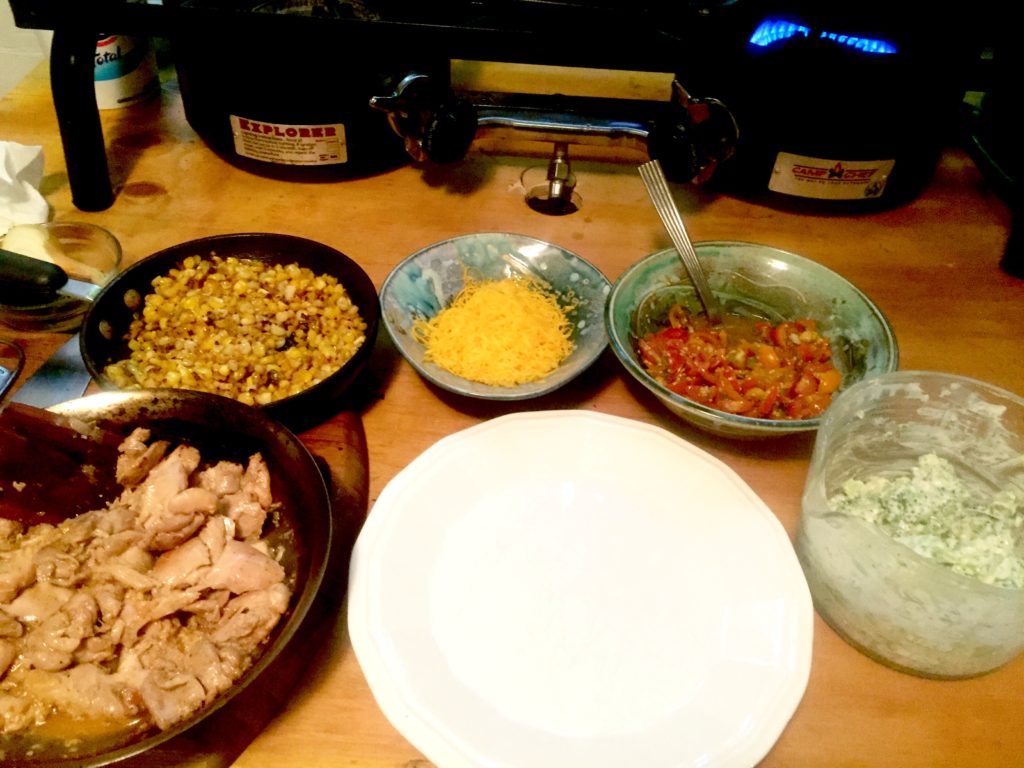
Sweet Corn, Cantaloupe, Roasted Jalapeno, Sungold Salsa:
Diced Sungold Tomatoes
Lime Juice
Diced Cantaloupe
Minced Roasted Jalapeno
Boil or Roast Sweet corn then slice from the cob
Minced Garlic
Salt/Pepper to Taste
Minced Fresh Oregano
Replace Cantaloupe with other fresh berries such as strawberries, raspberries, blueberries, or blackberries.
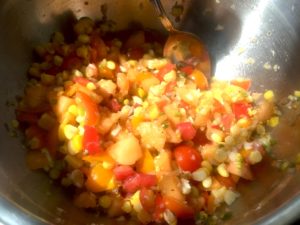
Sweet Corn, Sungold, Cantaloupe Salsa
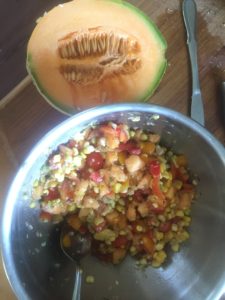
Roasted Sweet Corn and Chicken Thigh Tacos
Boil or Roast Sweet corn then slice from the cob
Quality corn tortillas
Sautéed Chicken thighs—chipotle seasoning
Broccoli Slaw
Diced Sungold Tomatoes mixed with diced garlic
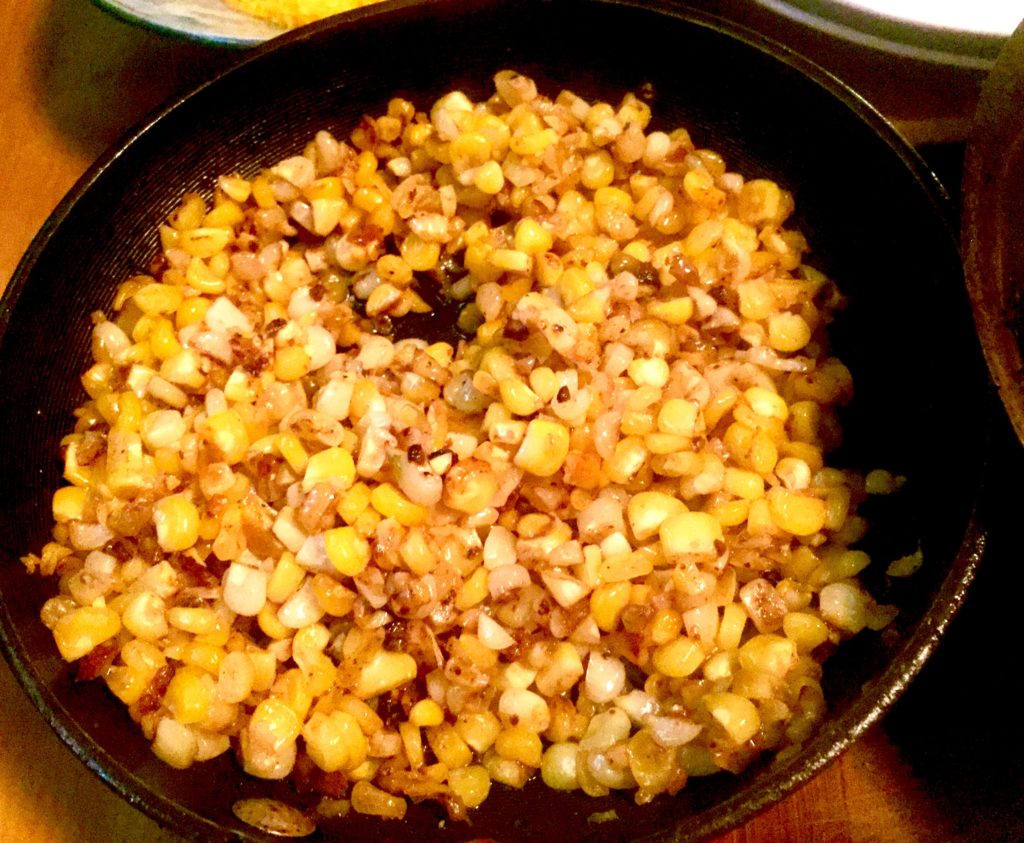
Roasted Sweet Corn
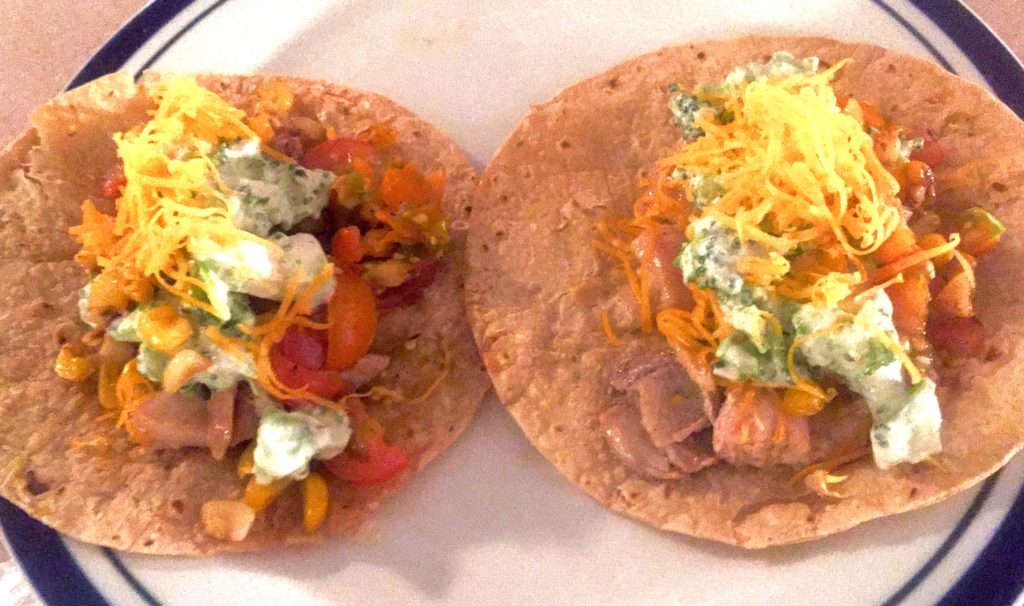
Roasted Sweet Corn Tacos
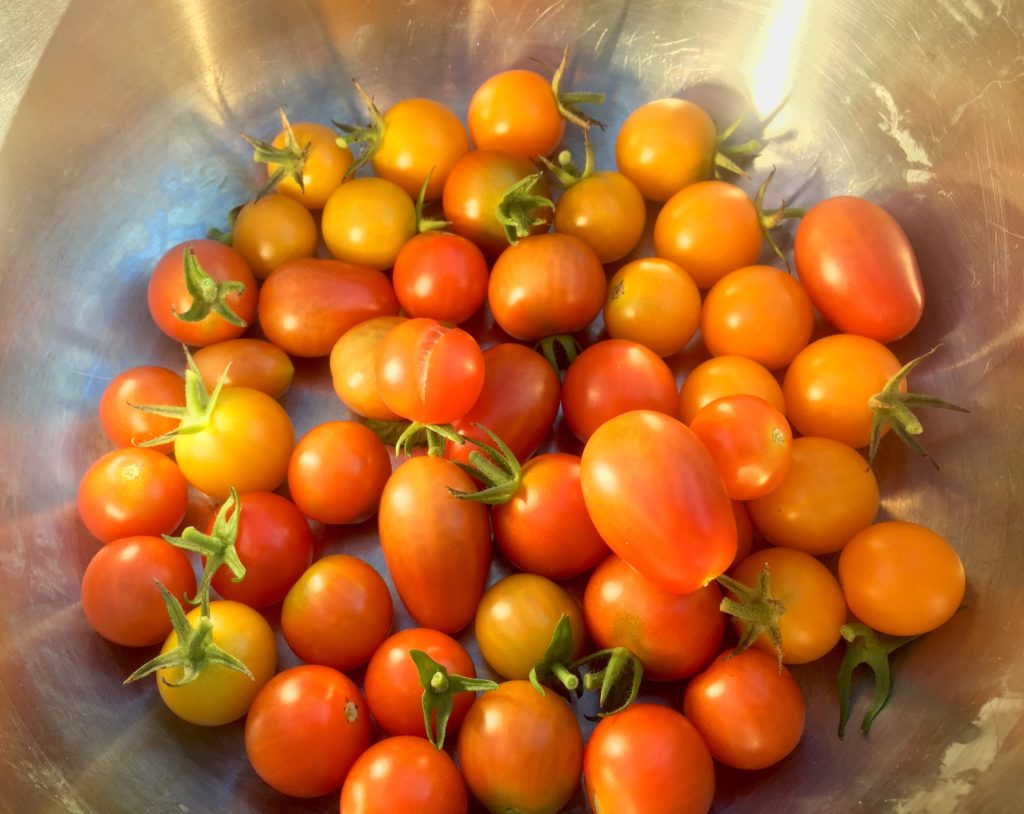
Sungold Tomatoes
